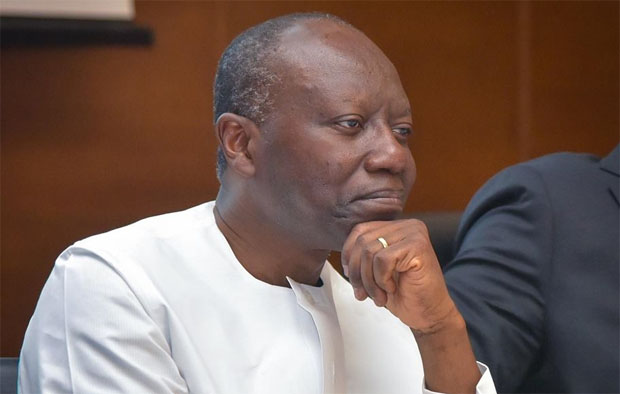International ratings agency, Fitch Ratings, has said that it does not expect the country to secure financing assurances from its bilateral creditors before the end of the second quarter.
The agency said in a press statement that although discussion among some of Ghana’s official creditors has started, the official creditor committee, which is responsible for providing the financing assurances, has not been created yet.
The country needs the financing assurances, which are a mixture of debt cancellation, restructuring and commitments of further strategic lending, to secure final approval for a $3 billion bailout package from the International Monetary Fund (IMF) to stabilise the economy for growth to resume.
However, in a statement announcing the downgrade of the country’s local currency bond to ‘RD’ from ‘CCC,’ Fitch Ratings said the assurances should not be expected before June.
The government has been hoping to secure the financing assurance in May to pave the way for a deal later that month or early June.
Commenting on the country’s quest for the IMF bailout, Fitch said the approval of the request would likely depend on the government’s ability to show a path towards bringing the present value of debt to 55 per cent of gross domestic product (GDP) over the forecast horizon.
It said this would be on the basis of the IMF/World Bank debt sustainability analysis (DSA) and the ability of official bilateral creditors to provide financing assurances in the context of the Common Framework external debt restructuring that the government has requested.
“Although discussion has started among some official creditors, the official creditor committee, responsible for providing the financing assurances, has not been created yet.
“Fitch does not expect the provision of financing assurances, which will pave the way for an IMF Board approval of the ECF arrangement and for a new debt sustainability analysis to be published, before the end of 2Q23,” the ratings agency said.
Default
Meanwhile, Fitch Ratings said Ghana has defaulted in servicing its local debt but has the prospect of recovery.
The agency downgraded the country’s local currency rating to ‘RD’ from ‘CCC’ this week in the latest misfortunes to have hit the troubled economy.
The ‘RD’ score is used by ratings agencies for economies whose sovereigns have defaulted in debt payment but show prospects of recovery.
On the outlook, it said: “Fitch typically does not assign Outlooks to sovereigns with a rating of ‘CCC+’ or below.”
Basis
Following the conclusion of the domestic debt exchange programme (DDEP), the government said holders of the ‘old bonds’ that were swapped would be paid their coupon and principals based on its fiscal capability.
The ratings agency, however, said that assurance has not been carried through, indicating that the country had defaulted in servicing its debt.
Consequently, it said the downgrade from ‘CCC’ to ‘RD’ was mainly on account of the government’s inability to make payments to holders of the ‘old bonds’ and the lack of certainty on when the payments would resume.
Ghana’s peers
Standards and Poor’s (S&P), another ratings agency, had earlier downgraded the local debt to the same ‘RD’ status while Moody’s is yet to issue its ratings.
The latest development now makes Ghana second only to Zambia in Africa and fourth in the world with a default creditworthiness.
Fitch said in the statement that it has also downgraded to ‘CC’ from ‘CCC’ and subsequently withdrawn the issue ratings on five local-currency bonds issued prior to the DDEP.
It said it had also affirmed the issue rating of local-currency bonds issued on the completion date of the domestic debt exchange at ‘CCC.’
Missed payments
Explaining the bases for the downgrade further, Fitch said the missed payments on some of the local-currency bonds issued prior to the domestic debt exchange could affect one or more of these five previously rated bonds.
“These five bonds are ISIN no. GHGGOG044744, GHGGOG066150, GHGGOG043563, GHGGOG065475, GHGGOG044751.
It said although the government announced that it was resuming payments on local-currency bonds issued prior to the domestic debt exchange (the ‘old bonds’) on March 13, 2023 to bondholders who were either ineligible or did not participate in the domestic debt exchange, it failed to honour that commitment.
“The authorities have subsequently acknowledged that only the coupon payments on the two-year note that matured on 20 February 2023 and the 20-year note maturing in 2039 had been made. The principal payment on the former note has not been made,” it said.
It said 35 payments, comprising principal and coupon, were due on the outstanding ‘old bonds’ between January 20, 2023 and April 20, 2023.



